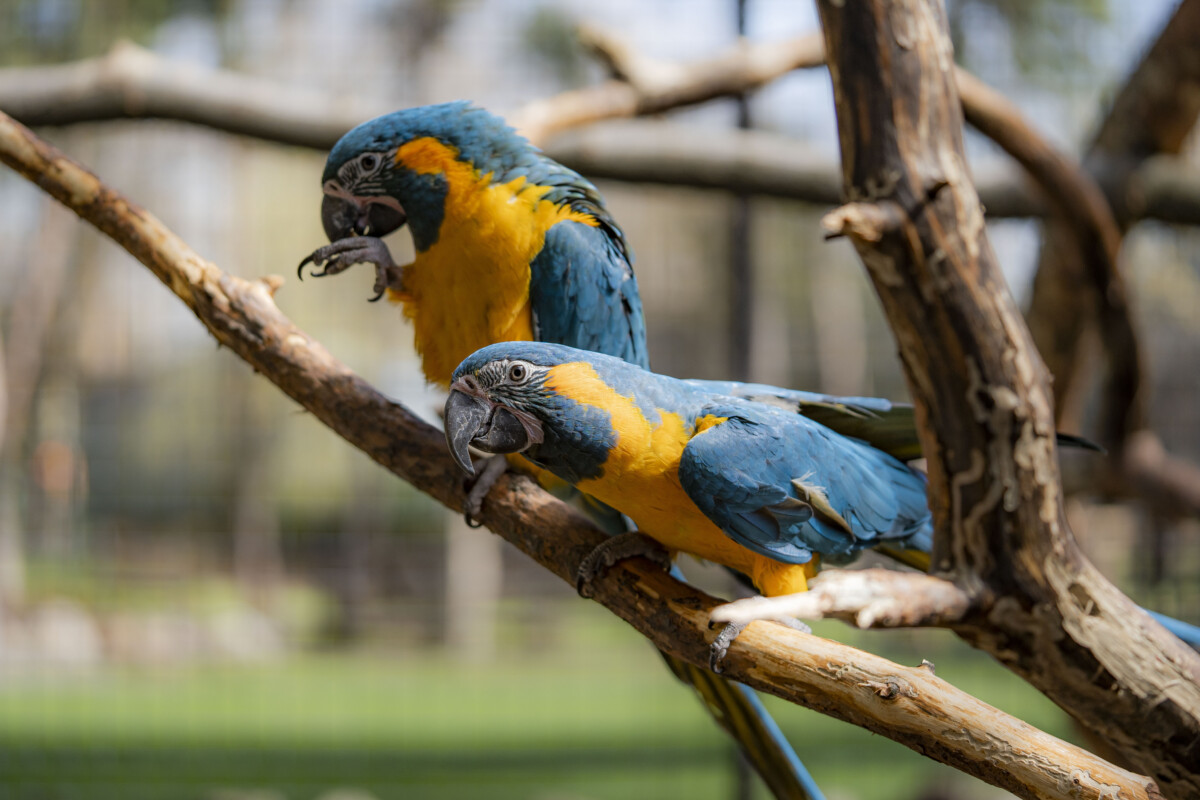With its 65th anniversary coming up this May 1, the Debrecen Zoo has some long-awaited and extraordinary newcomers to introduce after the recent arrival of two blue-throated macaws from Szeged Zoo under a European Ex Situ Program (EAZA EEP). The young females are now exhibited in the Park’s Parrot Section and the spring school break starting April 6 seems a great time to come visit them. Thanks to being hand-raised, they both made friends with keepers in no time and are hoped to soon join Animals in Action for up-close encounters with visitors.
Endemic to tropical and subtropical rainforests in Northern Bolivia, blue-throated macaws (Ara glaucogularis) are closely related to well-known blue-and-yellow macaws but are easily told apart by their iconic blue-throat patch. Their diet mostly includes the fruits of several palm tree species, supplemented by other plant parts like berries, seeds and flowers. Strictly monogamous, they tend to nest in palm trees; incubation is the sole responsibility of females while males forage for food but chicks are cared for by both parents.
Due to deforestation and captures for the illegal pet trade, there are only 200 to 300 individuals left in the wild, hence the species listed as Critically Endangered in the IUCN Red List and included in Appendix I of CITES. True zoo rarities in Hungary exhibited only in Szeged and now in Debrecen, blue-throated macaws are at the risk of being the next macaw species to become extinct in the wild after Cuban macaws, which makes their international conservation program especially important, with hopes of an eventual pairing and breeding success in Debrecen.
Dr. Gergely Sándor Nagy
CEO, Zoo Debrecen


















